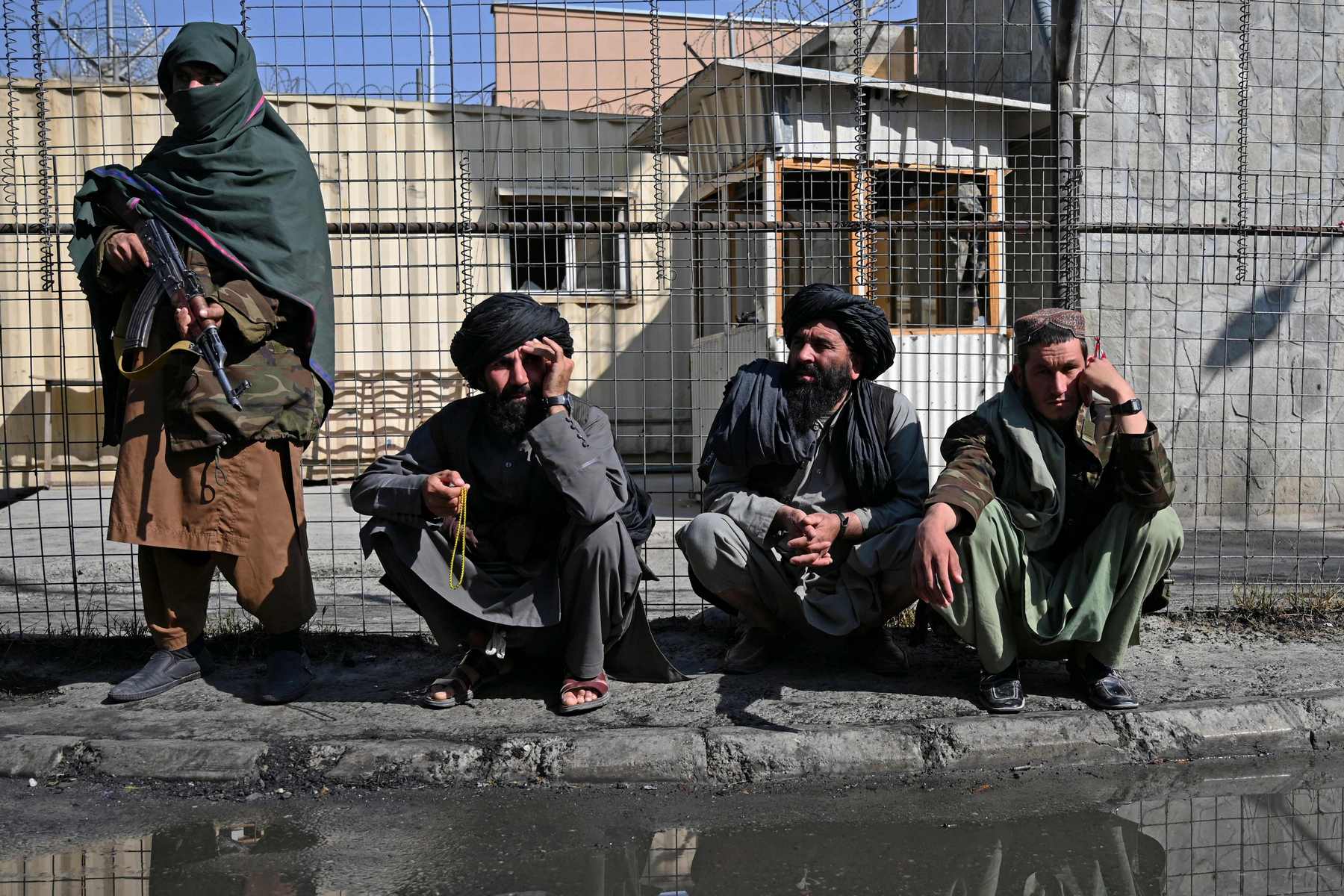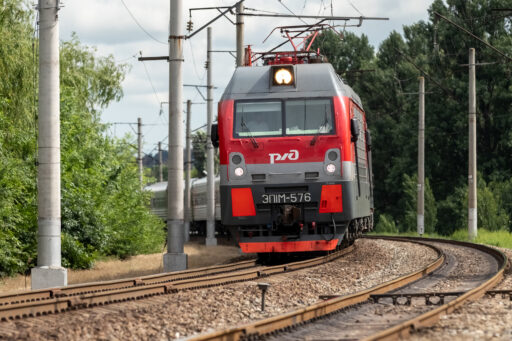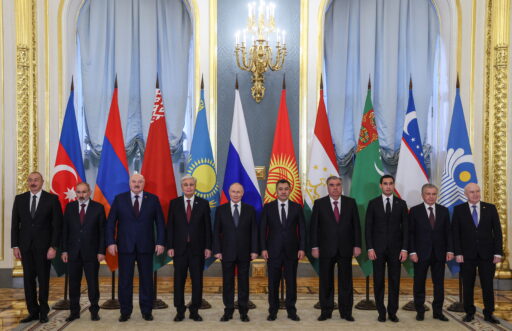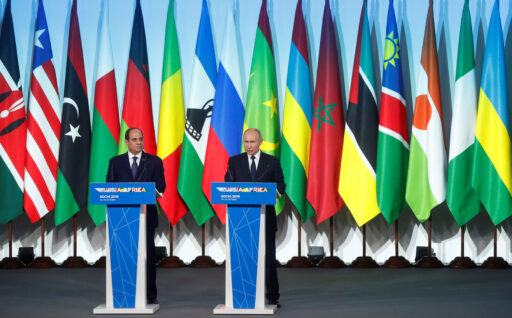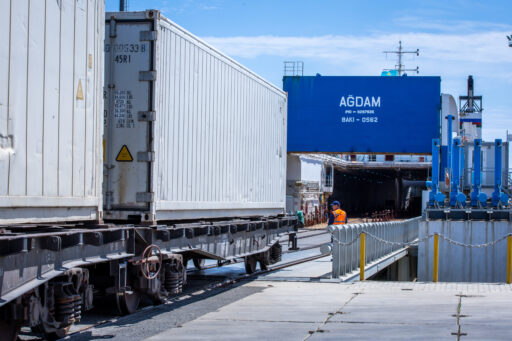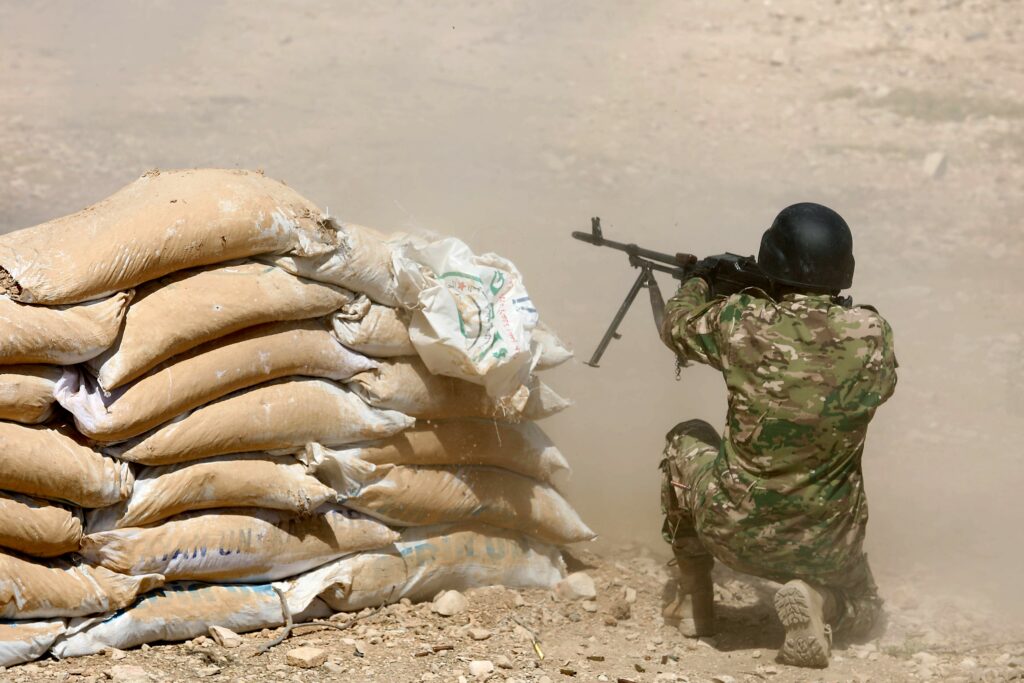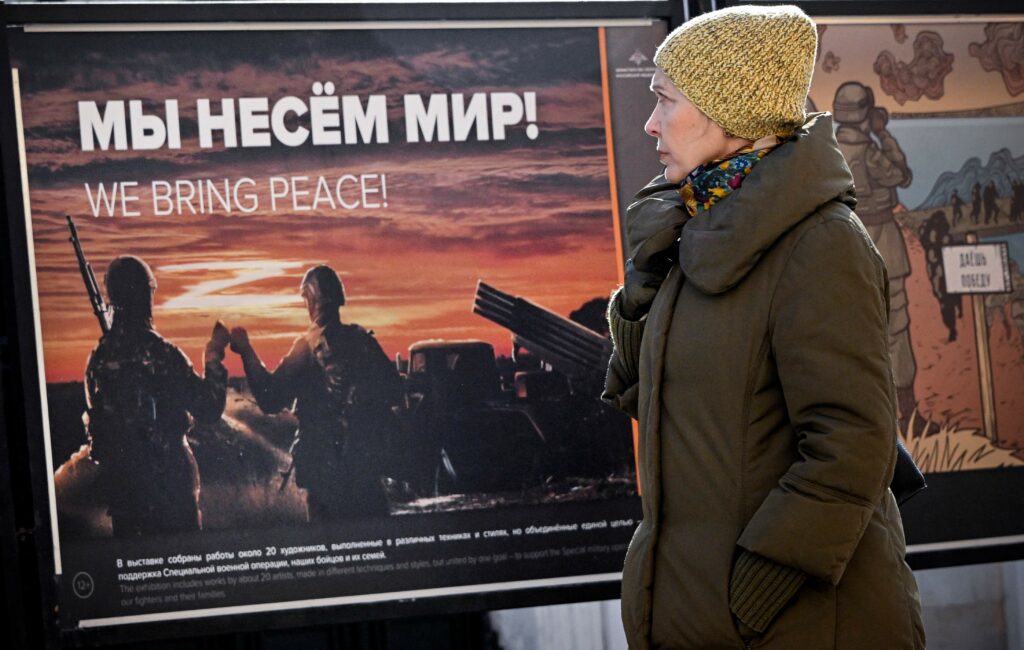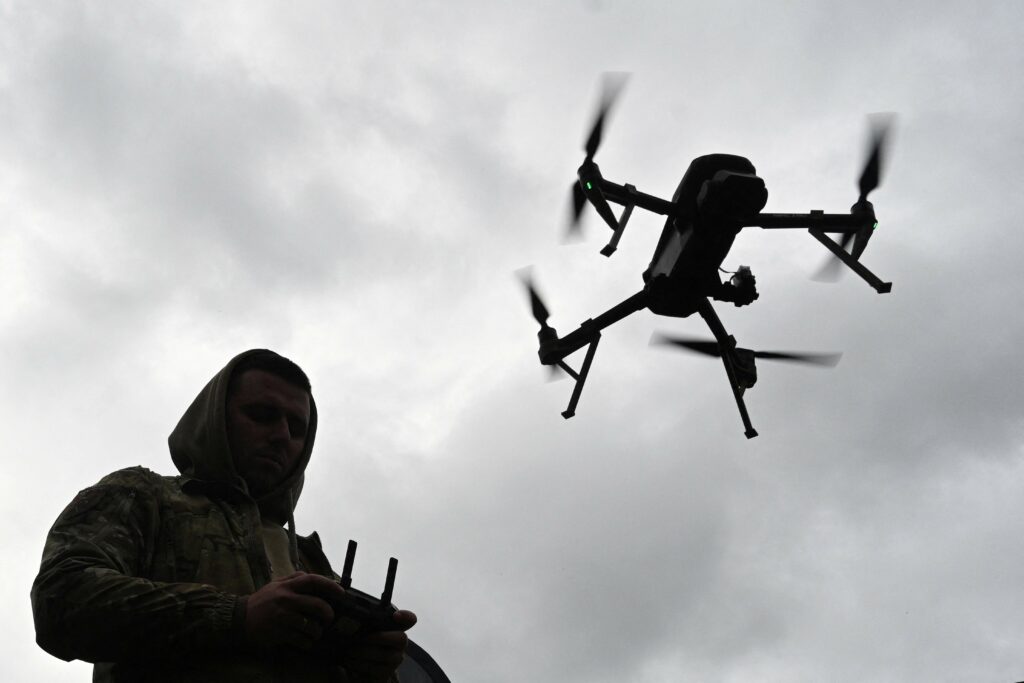Since the beginning of the U.S. troops withdrawal from Afghanistan, the Russian Embassy in Kabul and the Russian Ministry of Foreign Affairs took a generally complementary stance with regard to the Taliban, who are banned in Russia and the UN, while not being shy about criticising their political opponents. For example, Dmitry Zhirnov, Russian Ambassador to Afghanistan, at once called the Taliban, who had taken the embassy «under their protection,» as «reasonable, well-armed people,» and then repeatedly emphasised their «friendly disposition» and moderate views. At the same time, the head of the diplomatic mission quite undiplomatically called the anti-Taliban resistance «renegades» and directly criticised the security situation following the «shameful escape» of President Ghani. Zamir Kabulov, the Russian president’s special envoy to Afghanistan and director of the Second Asia Department at the Foreign Ministry, generally demanded that Ashraf Ghani be put on trial.
However, Russian diplomats subsequently toned down their well-targeted praise: either by adapting their position to the Kremlin’s statements, which commented on the Taliban’s rise to power more cautiously, where, to quote Dmitry Peskov «nobody benefitted from it», or by revising their position after the first Taliban personnel appointments, which postponed (or removed) the prospect of an «inclusive» government being formed.
It seems that the Russian diplomatic ministry has overdone its PR for the Taliban, trying not only to win their favours but also to express undisguised satisfaction with the failures of their «American partners».
That said, Moscow has long viewed the Taliban as a force to counter more radical groups, such as the local Islamic State (IS) affiliate Wilayat Khorasan (IS-WKh, banned in the Russian Federation). This was evident already back in 2015, when it became clear that the prospect of a US withdrawal from Afghanistan was a matter of time. At the same time, the Taliban then carried out a fairly well-known operation to destroy the Islamic Movement of Uzbekistan, which had moved under the banner of IS-WKh and consisted of citizens of Central Asian republics. It was probably this step that convinced the Kremlin of the need for close dialogue with the Taliban, although such an approach was obviously not a cunning combination but, instead, the only possible option in the context of the impending power vacuum and the absence of any alternatives to the Taliban as a force that could fill the gap.
The course adopted by the Taliban
The Taliban’s success is not only due to the fact that their movement is perceived by Afghans as a national liberation movement, but also because they share the same religious traditions: a significant proportion of the population (apart from the Hazara Shia) also adhere to the Sunni Hanafi school of legal reasonsing and the Māturīdī theological doctrine. This distinguishes them from the Salafi-Jihadist terrorist organisations (Al-Qaeda or IS) that emerged on the foundation of Arab Salafism (Wahhabism) and aspire to dominate the world. Even in the «miserable» 1990s in Afghanistan, the Taliban advocated to establish an Islamic system exclusively in Afghanistan, and therefore sought to establish diplomatic relations with Muslim countries and beyond. The position of the USA prior to the campaign was not quite unambiguous either: Washington was cautiously working with the Taliban and was even prepared to enable investments by U.S. companies in Afghanistan under their rule.
In this sense, the plans that the Taliban proclaim after the recent accession to power are not new. Another thing is that its representatives are now trying to reassure the international community that their priority is to develop the country and they will not allow anyone to use Afghanistan as a foothold for attacks on other countries. In particular, the Taliban have pledged to fight Al‑Qaeda and other terrorist groups and keep them out of Afghanistan.
For the Taliban’s «headquarters,» Al-Qaeda’s continued presence in the country is probably not beneficial: the profits from potential economic projects with Uzbekistan, China, Qatar, Turkey and Iran are much higher than the benefits from harbouring some radical groups. In the 1990s, Sudan and the Taliban offered asylum to Osama bin Laden not only because of their «Islamic position,» but also because of the money: for example, bin Laden’s structures invested in Sudanese industrial facilities and made payments to the Taliban, who then had no established economic links in the region, whether legal or not (drug trafficking, etc.). Now, Al-Qaeda (as it admitted itself) is more interested in having ties with the Taliban than vice versa. Precisely because of this connection or, more specifically, because of Mullah Omar’s refusal to extradite bin Laden to the USA, the Taliban found themselves internationally isolated and deprived of power for decades.
This is why the Taliban’s coming to power in Afghanistan can only promote a superficial «awakening» of radical groups around the world, who finally believe that «jihad» is bringing fruit. In reality, however, the example of the Taliban can demonstrate that dialogue, rather than confrontation with world powers, is more useful. To date, it seems that the Taliban have actually learned from the mistakes of the 1990s and are trying not to scare potential investors away. However, the display of such attitudes does not mean that Afghanistan’s neighbours are safe.
Problem No. 1
The Taliban cannot fill the entire power and security vacuum in all provinces. Their presence is limited to major population centres, and their combat strength does not exceed 60−80 thousand people (at the moment it is difficult to estimate the mobilisation rate among the population). Before the withdrawal of coalition troops, IS units were under pressure not only from the Taliban, but also from the U.S. air force and special forces, which conducted targeted operations, while government troops on the ground countered the radicalisation of certain areas by their sheer presence. With the collapse of this security system, there is a risk that radical groups may successfully expand into a number of areas and that militants may infiltrate into Central Asian countries, primarily Tajikistan, Uzbekistan and Turkmenistan. Given the mechanism of migration, the real condition of the border guard services in these countries and the widespread corruption, a similar scenario cannot be perceived by Russia as an indirect threat constrained by «buffer zones.»
Problem No. 2
The Salafi Jamaats do enjoy popular support in some provinces of the country, first and foremost in the Kunar and Nuristan districts, where they used to have their own quasi-state formations (autonomous communities) in the 1990s. Until recently, it was here that the Salafist units operated among the Taliban forces as part of tactical alliance, but now they can join the ranks of the IS-WKh, not to mention the fully autonomous units that also operate in these provinces.
The situation in Afghanistan’s Badakhshan, an uncontrolled region of north-eastern Afghanistan, raises serious concerns. Historically, this region has had a large number of radicalised Central Asians who are prepared to return home and try to repeat the success of the Taliban in their homelands.
In Badakhshan, there are still splinters of the terrorist Islamic Movement of Uzbekistan (the part that refused to join the IS branch), the Tajik radical group Jamaat Ansarullah, which has already been noted due to terrorist attacks in Tajikistan, and fighters of the terrorist Uyghur «Islamic Movement of East Turkistan» (or «Islamic Party of Turkistan»). Although the official purpose of the latter is to fight for the secession of Uighur- and Kazakh-populated territories from China, in reality the group long ago become a kind of private military terrorist company, which joins various alliances that operate far from China’s borders, for example, in Syria. Therefore, the Turkestan Islamic Party is likely to expand its activities into the territories of neighbouring Tajikistan, a Collective Security Treaty Organization (CSTO) member if it does not meet with adequate countermeasures. Furthermore, the Taliban’s relations with Dushanbe leave much to be desired, not only because of Rakhmon’s government’s tough stance on the movement, but also because of the Tajikistan’s direct support for the anti-Taliban opposition.
Problem No. 3
In mid-October, speaking at the council of CIS countries, Vladimir Putin stated that experienced fighters from Syria and Iraq were pouring into Afghanistan. Prior to the coalition’s withdrawal from the country, Moscow had used this claim to devalue U.S. counterterrorism efforts, but under the new circumstances the threat of transit is becoming real. For example, members of the Turkestan Islamic Party are fighting in Syria together with Hay’at Tahrir al-Sham (HTS, which has dissolved into Jabhat al-Nusra, an organisation banned in Russia) and are not formally leaving this structure for fear of arrest or elimination. However, they do not report to the leadership of HTS but to their emir in Afghanistan.
An attempt at similar transit can be expected from the Qatibat Tawhid wal-Jihad (not to be confused with the Iraqi group bearing the same name), composed of citizens of Central Asian republics, primarily Uzbekistan and Tajikistan, many of whom had previously been migrant workers in Russia. The same could happen with Imam Bukhari Jamaat, another fairly large group in Idlib, composed of Uzbeks. The same applies to the Caucasian jihadist groups: Ajnad al-Kavkaz and the remnants of Junud al-Sham. The latter has already been disbanded under pressure from HTS and its fighters are looking to continue their anti-Russia activities in other countries.
The success of redeployment of such groups to Afghanistan largely depends on Turkey, i.e. on whether Turkish security services will actively oppose such movement or turn a blind eye. On the one hand, Ankara’s level of engagement with Moscow and relations with Central Asian countries do not suggest that Turkish intelligence would provide any assistance in infiltration. On the other hand, the presence of these fighters in Idlib and the potential possibility of them moving to the Turkish-controlled Syrian operation zones in Syria (Operations Peace Spring, Olive Branch and Euphrates Shield) also runs counter to Turkey’s security interests.
Problem No. 4
The composition of the Taliban is not homogeneous. On the one hand, there have already been reports that the movement has delivered an ultimatum to Central Asian jihadists amassed near the Jurm District: they are supposed to register and lay down their arms. On the other hand, at this time of Taliban consolidation at power it is not clear how they are addressing the problem of fragmentation within the movement, which, incidentally, was occasioned by its relationship with Al-Qaeda, the Turkestan Islamic Party and the Islamic Movement of Uzbekistan.
The thing is that some members of these groups aligned themselves with the Taliban for tactical and pragmatic reasons. They may as well break away to undertake independent action — at least to fly the flag — if they are relatively free in the regions and receive adequate funding from abroad.
Moreover, the Taliban leadership has previously consisted of several autonomous administrative and political-military councils which were not clearly hierarchical. These were the Quetta Shura, based in the Pakistani region of the same name and backed by the Pashtun Durrani tribe, and the Peshawar Shura, controlled by the Haqqani Network and made up of members of the Pashtun Ghilzay tribe.
Although the activities of the Quetta Shura and the Peshawar Shura have been transferred to Afghan territory, the Taliban still rely on a network of local warlords who are subordinate to these councils only when preparing and conducting military operations but otherwise enjoy a fair degree of freedom. The most influential and authoritative of them are selected for appointment as «shadow» governors, but in terms of their beliefs they may be very far from the views proclaimed by the Taliban «core». It is known, for example, that the governor of the Taliban shadow government in the Balkhab district (Sari Pul province) was Maulawi Mahdi, a Shia Hazara.
For this reason, Taliban warlords in some regions can be both agents of Shiite Iran and allies with Al-Qaeda or IS-WKh units. This is not necessarily because of money or beliefs — it is simply to keep them out of their «fiefdoms» and allow them to expand into neighbouring ones.
Problem No. 5
The Taliban also had relatively autonomous units operating within its ranks, including some that were spiritually close to Al-Qaeda and were capable of carrying out operations and activities in neighbouring countries. For example, let us mention the 055 Brigade, which consisted of Al-Qaeda fighters and committed numerous crimes against Afghan civilians. That said, the current real number of members of central Al-Qaeda and its rather autonomous franchise, Al-Qaeda in the Indian subcontinent, in Afghanistan is a highly complex question. According to some reports, they were present in 13 provinces of the country before the change of power.
The prospect of them using Afghanistan as a «safe haven» persists largely because the Taliban includes the Haqqani Network, which is heavily influenced by Al-Qaeda ideology and has adopted many radical attitudes and terrorist warfare methods from it, such as the use of suicide bombers to attack civilian targets.
Importantly, the Haqqani family is represented at a very high level in the current Taliban government: Sirajuddin Haqqani, leader of the Haqqani Network, serves as interior minister, Khalil ur-Rahman Haqqani is minister for refugees and repatriation, and Anas Haqqani is a member of the Taliban’s political office and is considered to be the Taliban’s political envoy to the Arab and Islamic world.
A member of the Haqqani Network oversees the Interior Ministry, the agency responsible for the Taliban’s intelligence services and all «covert operations» but the real plans of the network are unknown. The Haqqanis’ plans may indeed be different from those held by the Taliban’s «political office,» striving for a more active integration of various jihadist structures. How far the «central office» is prepared to clamp down on any uncontrolled activity of the «wings» is a question no one can answer, but perhaps it is not without reason that the Taliban are trying to immediately deny any rumours about discord within the movement.
Many researchers, and not without a reason, suggest that the Haqqani Network is a lobby for jihadist factions to ensure that radical groups in Afghanistan are perceived as a reserve and a bargaining chip vis-à-vis the international community. There have already been reports that groups linked to Al-Qaeda are changing locations and moving under the protection of the Haqqani Network.
Prevention of terrorist financing depends on transaction monitoring, but the Taliban, even if they wish to, are unlikely to ensure such monitoring. The clandestine money transfer network (hawala) has long been a tradition in Afghanistan, which is why much more money circulates through it in Afghanistan than through the banking system. With a significant portion of Afghanistan’s Central Bank reserves held in U.S. bank accounts and millions of Afghans being accustomed to this «grey» money transfer system, the Taliban have essentially no incentive to build a centralized banking system or to open a semblance of a financial centre in, say, Qatar. And these steps are important, among other things, for preventing the financing of terrorism on Afghan territory and radical operations aimed at Central Asian countries and the West.
The current situation in Afghanistan means that even those players who maintain diplomatic missions here do not know at all what the Taliban’s governance in the country is going to look like. It is still unclear whether the Taliban will deliver on their promise to form a permanent government with the participation of all Afghan ethnicities, and it is even more unclear how much balance is possible between the «pragmatic» and the radicalising wings of the Taliban. In this sense, Moscow needs at least to show restraint in its official rhetoric, otherwise excessive initiative on the ground could provoke new accusations — if not of attacking the U.S. military, then of covering up a «safe haven» for radicalized elements. In recent years, all of Russia’s anti-terrorist exercises with Central Asian countries have boiled down to scenarios with militants trying to cross borders in organised formations. Of course, the Taliban are not interested in such a scenario. However, whether their security services are actually prepared to exchange information on certain terrorists, destroy or extradite them, remains an unanswered question. Most likely, the Taliban would prefer to act independently in this regard. Such attempts to remain «within one’s own silos» could mean that Afghanistan will remain a haven for international radicals from around the world.
